Meet Andrew L. Hicks | Author, Songwriter, & Entrepreneur
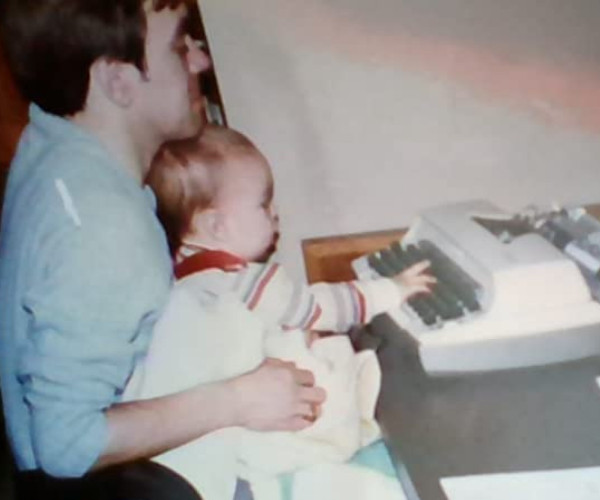
We had the good fortune of connecting with Andrew L. Hicks and we’ve shared our conversation below.
Hi Andrew L., Let’s talk about principles and values – what matters to you most?
My bottom-line guiding principle is ahimsa, otherwise known as non-violence.
Non-violence as a guiding principle applies to much more than its obvious implications pertaining to physical violence. Emotional violence is caused by unskillful words or even passive aggressiveness. Many industries and traditions in our world, cause violence to the environment, family systems, individual autonomy, and collective harmony.
I realized the hard way that living out of alignment with my own values for a long time, is a recipe for unbearable violence toward myself.
When I was a child, there was a large pile of ants congregating on the sidewalk in front of my family’s house. In response, one of the adult neighbors drenched the ants in flammable liquid and dropped a match. No one around me seemed to think it was a big deal at all, but I could not help but imagine life from the perspective of the ants. These hard-working, synergistic, industrious creatures, just going about their lives, snuffed out by a calamity they could not even begin to fathom.
When human properties and lives are devastated by a natural disaster, this is perceived as senseless and traumatic tragedy. However, when humans ARE the natural disaster for other beings, it’s business as usual.
As I got older and reflected on that experience it became important to me to respect the will and/or instinct to live of all beings. Business as usual for society cannot be business as usual for me.
Sometimes I thought it might be nice to go with the flow more, and let go of these ideas, but there is no way to undo the footsteps that brought me here. Any hardship of living in alignment with ahimsa pales in comparison to the disorientation of cognitive dissonance.
Of course, I am not flawless in this regard, and I never will be. But with a guiding principle of ahimsa, the problems in our lives and in the world become clearer, as do their solutions.
One of the most hopeful visions that grows from ahimsa for me, is the notion of transforming most forms of competition in our world, into synergy. A world where anyone can thrive without doing so on the backs of others. A world where everyone is empowered to be the most authentic expression of themselves.
This seems like idealistic naivety to many people living today, and I get it, but the forecast for the future can change considerably when one truly commits to letting the rest of their ideas and perceptions rotate around the gravitational center of non-violence in all its expressions.
This all has immense implications for the way humans do business, and even how we response to crime and war. If humankind devoted the same level of tenacious ingenuity to non-violent solutions as we have traditionally put into blowing shit up, everything everywhere would irrevocably change. But we’re not going to do that, so long as that’s not where our collective compass points.
Naturally, I can’t decide where the collective compass points, but I can do my part for what I believe in. The solidity and endurance of this principle will be tested by time; tested by conventional, competitive thought, by human habit, and by hedonistic impulse.
No one can say who will emerge victorious, but I like the old Edmund Burke quote about how the only thing necessary for the triumph of evil is for good people to do nothing.
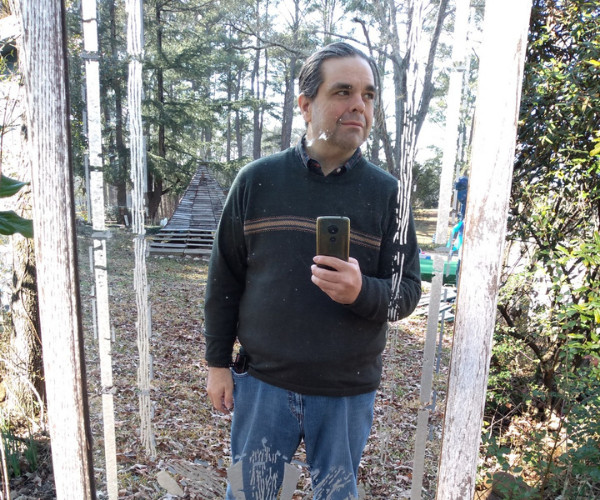
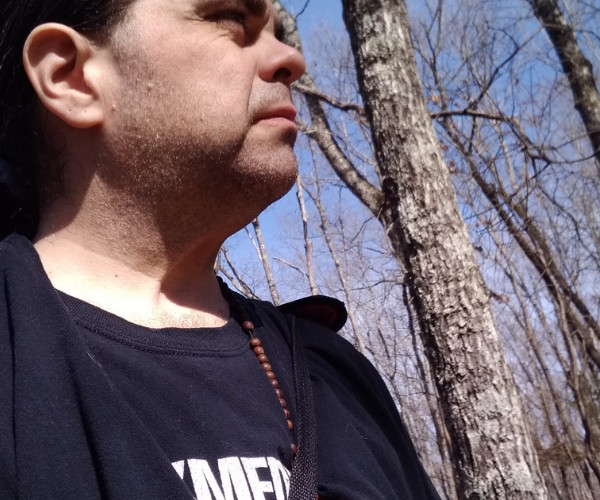
Alright, so let’s move onto what keeps you busy professionally?
Writing fiction is much like dreaming.
In your dreams, every character, object, and setting you perceive seems separate from you, but you logically know afterwards, that it was all constructed by aspects of your subconscious psyche. The elements come together in ways that are often unexpected, bizarre, and encrypted. You are the unified field that holds the content and narrative of your dreams together. You are the Oneness.
Writing is the same. The written word is the orchestra of the abstract. It exposes the psyche’s undercurrents, remixing them, encrypting them, and presenting them as a series of separate characters, objects and events, but those divisions are an illusion. When you write a book, you are the unified field that holds its content and narrative together. You’re the Oneness.
But that’s just the beginning.
A book that reaches an audience becomes a multiverse, with different versions of the story and characters being born in each reader’s mind and heart. What started as an expression of the abstract workings within the writer, becomes an evocative and vibrant world within everyone it touches. Readers will take away perspective and wisdom that the author didn’t even intend.
The written work continues to spread outwards forever, through the inspired actions and discourse that the reader engages in throughout their lives. I am 40 years old today, but stories I absorbed as a child continue to impact the way I speak, think, work, and love. They are part of my Oneness, my totality.
Writing is an act of exorcising inner demons, and empowering readers to do the same. The writer and reader alike go on the hero’s journey along with their protagonist. The villain’s journey is a part of us too, since the entirety of the story is weaved from a singular unified field, part of the writer’s psyche that finds a home in the reader’s heart.
This is the short version of why I love writing and reading, and why writing is my primary artform.
And from here, I can easily fathom that perhaps all the characters, objects, settings, and narratives of our real world are bound together by a unified field as well. That the separation between you and I is, on some level beyond all appearances, is an illusion. That when one of us hurts, we all do. That when one of us triumphs, so does all of everything.
Getting out of my own way is my greatest challenge as a writer. Moving through insecurities, imposter syndrome, and operating within the limitations of my habits, faulty beliefs, and emotional damage. Expanding those limitations when possible and accepting myself when I enter a season of collapse and rest.
It’s the furthest thing from easy but rising to the occasion is what life is all about.
My story on Kindle Vella, ‘The Fern and the Rose’ is about a chronically ill person named Rei Fern, who has been bedridden for his whole life. He can’t imagine being functional. His character was inspired by my own stagnation in life, my depression, addiction, hopelessness, helplessness, and the dreaded fear that those conditions can never improve.
I needed to believe that my conditions could improve, so Rei became my avatar, and the overarching theme of ‘The Fern and the Rose’ is that no matter how long stagnation and hopelessness have prevailed, that tomorrow can be different than yesterday. For Rei, for me, and for anyone who needs it.
It’s the story of how a socially inept, bodily-broken recluse becomes one of the most celebrated leaders that the world will ever know.
If Rei Fern were real, the people who’d meet him at his future best, would never be able to imagine his desolate origins. They’d never know the decades of hard work. The failure. The times he wanted to die, and the times he took action to die. The loneliness. The anxiety. The lethargy. The fears faced; the inner demons transformed to lighthouses.
And except for the people who know the story behind the story, no one will ever know I actively overcome all of that too and more, right along with Rei.
Every story you read has parallels to this. Each tale in existence is a monument to overcoming.
If you had a friend visiting you, what are some of the local spots you’d want to take them around to?
Near the house where I grew up in Lansing, Michigan, when I was a kid there was a dirt trail through the woods that opened up into a gravel pit. Those woods are called Scott’s Woods, and my family often followed the trail to the gravel pit. I have many precious memories in those woods, from my dad playing “Pooh Sticks” with my brother and I on the bridge over a creek, to the sense of adventure that awakened in my heart as I journeyed off the beaten path.
In 2002, I moved back to the Lansing area after a year away. Looking for a sense of familiarity, I walked the Scott’s Woods trail. I’ll never forget how I felt when I approached what I was expecting to be the gravel pit, but now it was a breathtaking lake, vividly reflecting the glory of the sun and sky. It was such a beautiful and surprising moment. That lake is now part of a park called Hawk Island, and I love to go hiking and swimming there in the summer. I also love taking close friends there to wax nostalgic and share sacred memories.
Hawk Island connects to Lansing’s River Trail, which is a wonderful resource for the city. It’s pragmatic for on-foot and bicycle transportation and offers a unique perspective of the city.
I don’t eat out much, but my Mediterranean is one of my favorite options, as it has fulfilling selections for vegans. I haven’t gone to Zap Zone since COVID started, but I’ll always have a soft spot for laser tag and glow-in-the-dark mini golf.
All in all, nature trails are King. My favorite local ones are Woldumar, Fenner, Sharp Park, and Grand Woods. Walking the Appalachian trail and Camino de Santiago are on the bucket list, but I’ll start with a humble warm-up at Kal-Haven here in Michigan. Multnomah falls in Oregon and the Oregon coast in general, for me, some of the most special places on Earth.
I recently reconnected with my childhood passion for exploring caves and caverns, although my particular locality has no options in that department. I love road trips though and have recently taken short trips to Ohio and Alabama to go spelunking. My inner child gave me a huge hug for that.
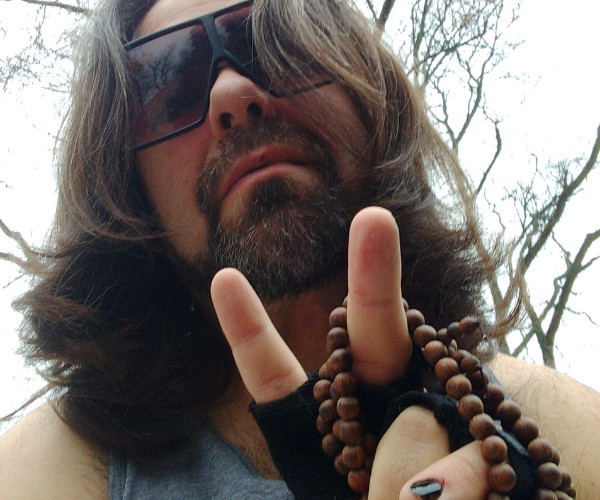
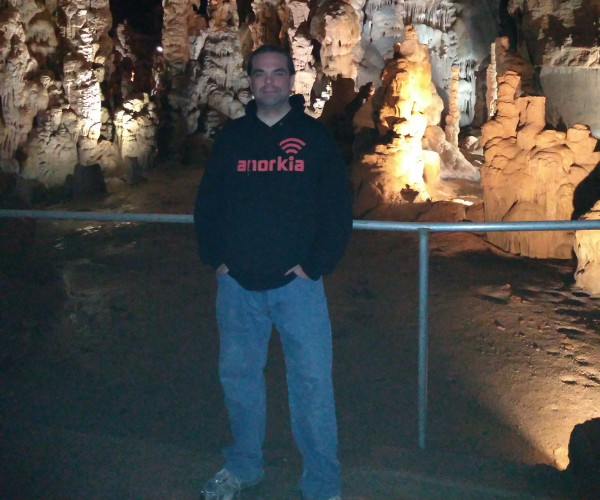
The Shoutout series is all about recognizing that our success and where we are in life is at least somewhat thanks to the efforts, support, mentorship, love and encouragement of others. So is there someone that you want to dedicate your shoutout to?
Refuge Recovery (https://www.refugerecovery.org) is a Buddhist-oriented mutual aid group for those recovering from the underlying causes and conditions of addiction. RR has provided me a safe haven and community that empowers me to build a life-sustaining practice and develop understanding of how to practice ahimsa in my life.
I also want to give a massive shoutout to Gauri Yardi (https://www.gauriyardi.com), a “creative burn out escape artist” with a podcast that gave me power and hope to keep moving forward creatively when I honestly felt ready to throw in the towel.
Finally, there are a number of compelling authors producing stellar content on Amazon’s new Kindle Vella platform. The sense of community and synergy I have with these writers keeps me focused on moving forward. There are too many to name, so I’ll just name three: Kendra Griffin (https://kendragriffin.com), Eric Sazer (https://ericsazer.com), and Gage Greenwood (https://www.gagegreenwood.com).
One more perpetual shoutout to Lucia Cifarelli (https://luciacifarelli.com) for being an amazing presence in my life since my tender age of 19.
Website: https://andrewlhicks.com
Instagram: https://www.instagram.com/andrewlhickswrites/
Twitter: https://twitter.com/andrewlhicks
Facebook: https://www.facebook.com/fundamenta.novi/
Youtube: https://www.youtube.com/channel/UCOE_TwvlLWU_uopeihgzBnA
Other: The Fern and the Rose on Kindle Vella: https://www.amazon.com/kindle-vella/story/B09K2KSCRR The Art of Being Human on Amazon: https://www.amazon.com/dp/B08LR6SFCS/
